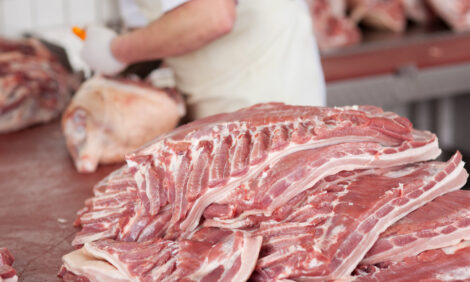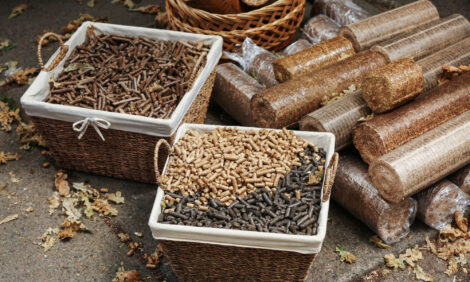



Manhattan: The Ideal Location for NBAF?
KANSAS, US - Kansas has been selected as one of the six possible sites to serve as the focal point of the US defense against biologic weapons and agroterrorism for the next generations. Could it be the right choice of location?Kelly F. Lechtenberg, DVM, Ph.D., says that in his opinion, Kansas is clearly the most appropriate location for this facility.
According to Mr Lechtenberg, the scientific endeavors to be conducted inside the layers of safety of the National Bio and Agro-defense Facility will make all possible sites equally safe. The predecessor facility at Plum Island is located on an island because that was part of the biosecurity plan of the day.
* "I want to see the brightest minds in the world and the most experienced animal husbandry personnel working to protect our food supply" |
|
Kelly F. Lechtenberg, DVM, Ph.D.
|
He says that all aspects of security and biosecurity systems have evolved to the point where a strip of water no longer contributes significantly to the overall biosecurity plan.
Mr Lechtenberg says: "As a third-generation Nebraska livestock producer, I am certainly concerned about the impact that a foreign animal disease break could have on the animals involved, livestock producers, their families and the small towns and cities across the country that are intimately tied to the agricultural economy.
"I want to see the brightest minds in the world and the most experienced animal husbandry personnel working to protect our food supply from those that would choose to harm our economy and us. I believe that locating the facility in Kansas provides that highest access to and highest retention of the personnel needed. I'd like to see the NBAF operated and staffed by people that grew up in the livestock industry and became scientists rather than by scientists who found good jobs at a lab. The biosecurity of the NBAF is not only about science, but also about integrity and commitment to biosecurity. I pray that the NBAF is ultimately staffed by a high percentage of people who are ultimately protecting their own third-, fourth- and fifth-generation family traditions and livelihoods in production agriculture.
"As a businessman, it is impossible to ignore the economic implication to the local economy. Our small company has just over 30 employees. I appreciate the impact of providing good jobs. NBAF will be good for Manhattan and the surrounding region. Having NBAF in Kansas will be good for the nation."
Collaborative scientific opportunities will be improved if the NBAF is placed in Manhattan. The proposed site is adjacent to Kansas State University's Biosecurity Research Institute, the only biosafety level-3 biocontainment research and training facility in the U.S. that can accommodate research on high-consequence pathogens important to livestock, food crops and food processing under one roof.
It also is adjacent to the K-State College of Veterinary Medicine. K-State is home to the finest food animal veterinary program in the world. The work conducted in the NBAF will primarily be on food producing animals. Mr Lechtenberg adds that it makes sense to have access to the finest food animal veterinarians in the world with continuous access to the young scientists who will come through the program at K-State.
He says: "As a veterinarian and scientist, I understand the concern of our nation's agricultural producers. Infectious disease agents can be ravaging, but they are not magic. Our challenges lie in obtaining most complete understanding possible of the infectious agents of national security interest. Our opportunity for a safer future lies in our ability to learn more about the risks we face, educating those involved and continuing to develop procedures and technologies to mitigate risks posed by our enemies. I believe that those opportunities will be realized most completely, most efficiently and most securely in Manhattan, Kan."









